The Real Reason Germany is Betting Billions on Green Energy (It's Not What You Think!)
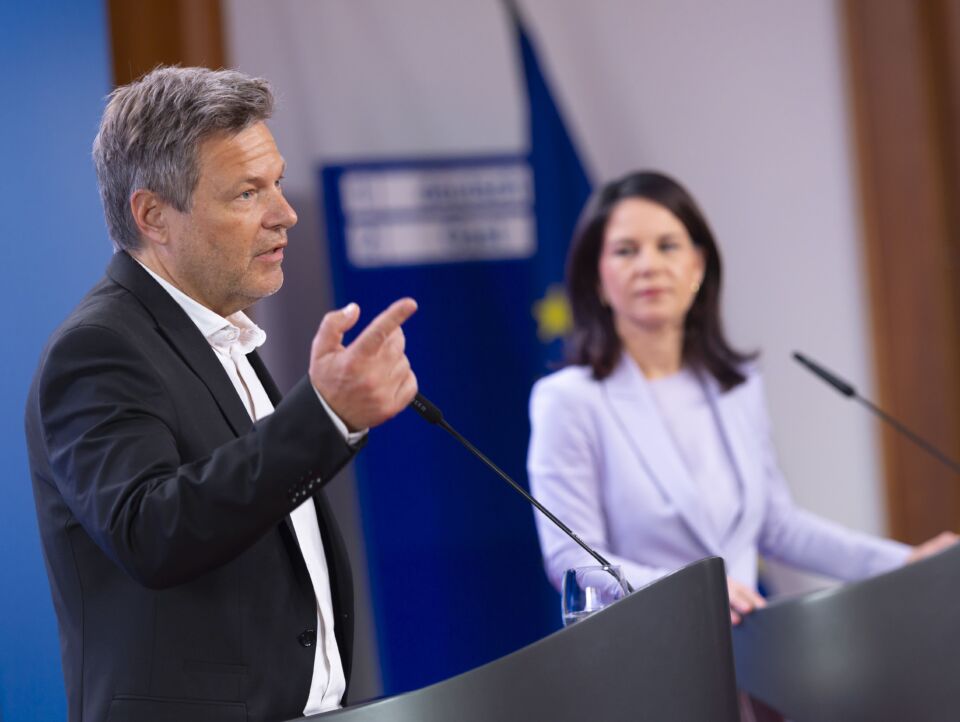
By Madhav Guragain
Berlin / Kathmandu – More than a month has passed since the bustling halls of the German Federal Foreign Office hosted the 11th Berlin Energy Transition Dialogue (BETD) on March 18-19, 2025. Yet, the echoes of that event, marked by dramatic political undercurrents and powerful pronouncements, continue to reverberate, painting a compelling picture of Germany navigating the complex intersection of climate action, energy security, and a stark new geopolitical era. It was a moment that crystallised Germany's evolving role – not just as a climate pioneer, but as a nation grappling with hard realities while doubling down on its green ambitions as part of a broader national security strategy.
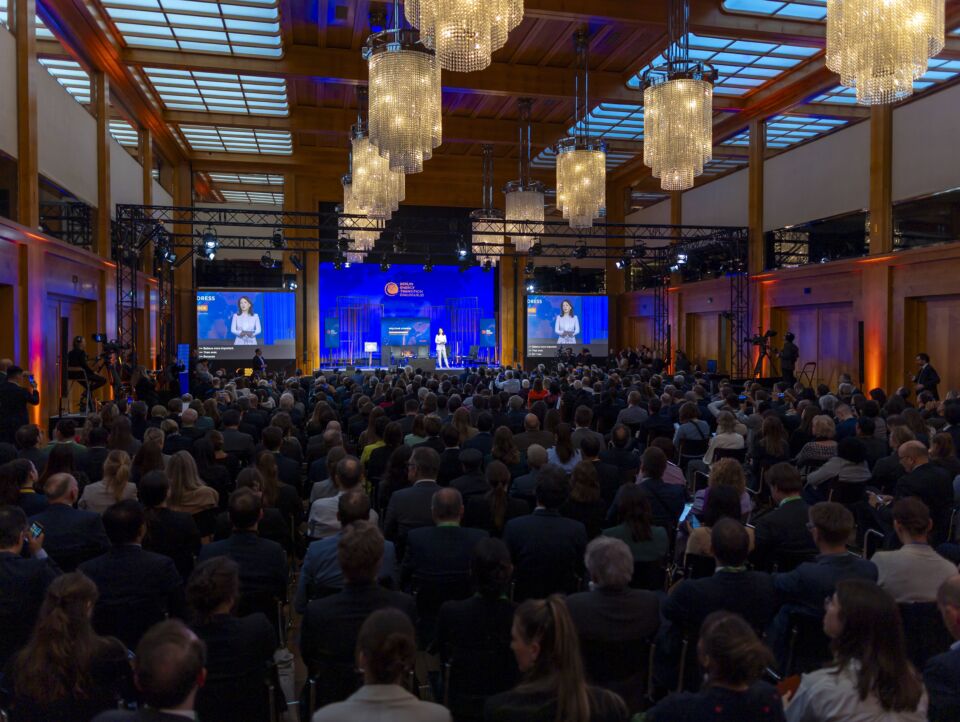
The conference opening itself was symbolic. High-ranking delegates and energy experts from around the globe awaited the keynote addresses from Federal Foreign Minister Annalena Baerbock and Federal Minister for Economic Affairs and Climate Action Robert Habeck. Their significant delay wasn't a mere scheduling hiccup; it stemmed from their participation in what Minister Baerbock would later describe as a "historic session" of the German Bundestag occurring simultaneously that very day, March 18th.
In that session, German parliamentarians, needing a two-thirds majority, took the momentous step of amending the country's constitution. They voted to ease the deeply ingrained "debt brake" (Schuldenbremse) specifically for defense and security needs and established a massive €500 billion special fund. This fund is earmarked not only for national infrastructure modernization over the next 12 years but critically includes €100 billion dedicated to accelerating the path to climate neutrality by 2045 – a goal now also referenced in the constitution alongside the fund. The delay, therefore, perfectly encapsulated the story's central tension: Germany was performing a high-wire act, balancing urgent domestic security and economic recalibrations triggered by geopolitical shifts with its long-standing international climate commitments.
Energiewende Forged in Geopolitical Fire
When Ministers Baerbock and Habeck finally took the stage at BETD, their speeches carried the undeniable weight of that parliamentary decision. Baerbock wasted no time connecting the dots: "energy policy infrastructure is not an isolated issue anymore. It's part of a new geopolitical world," she stated, emphasizing that "investing in renewable energy is part of investing into our security and thereby investing in our strength." She pointed directly to the €500 billion package as proof of this integrated thinking.
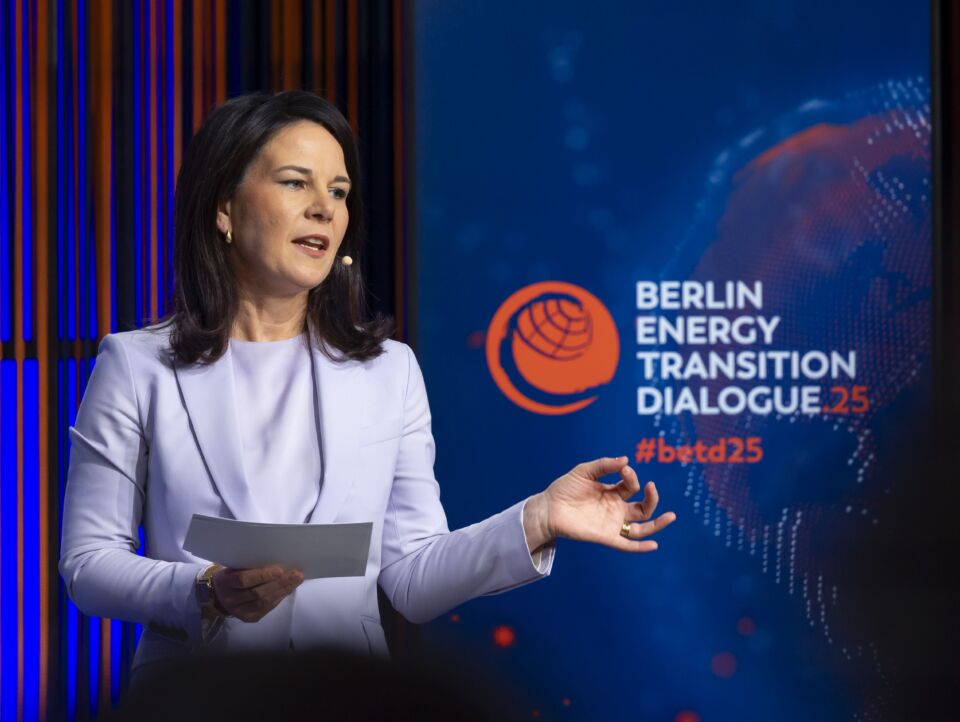
Minister Habeck, whose portfolio uniquely merges the economy with climate action, provided a deeper, more philosophical framing. He began deliberately in English, acknowledging the international audience, before switching to German. His explanation – citing German media habits and the prevalence of dubbed films hindering everyday English proficiency compared to smaller nations – was a disarming yet telling nod to the domestic context within which Germany's global ambitions must operate.
His core message delved into the profound shift in the global order. "There is one main line of confrontation," Habeck declared, "...between freedom and force, violence." He acknowledged the fading of post-Cold War optimism, where trade and dialogue were expected to foster global unity under a rules-based system. Today, he observed, "geopolitics is guided by interests and spheres of influence," sometimes pursued with force, breaking the principle of self-determination.
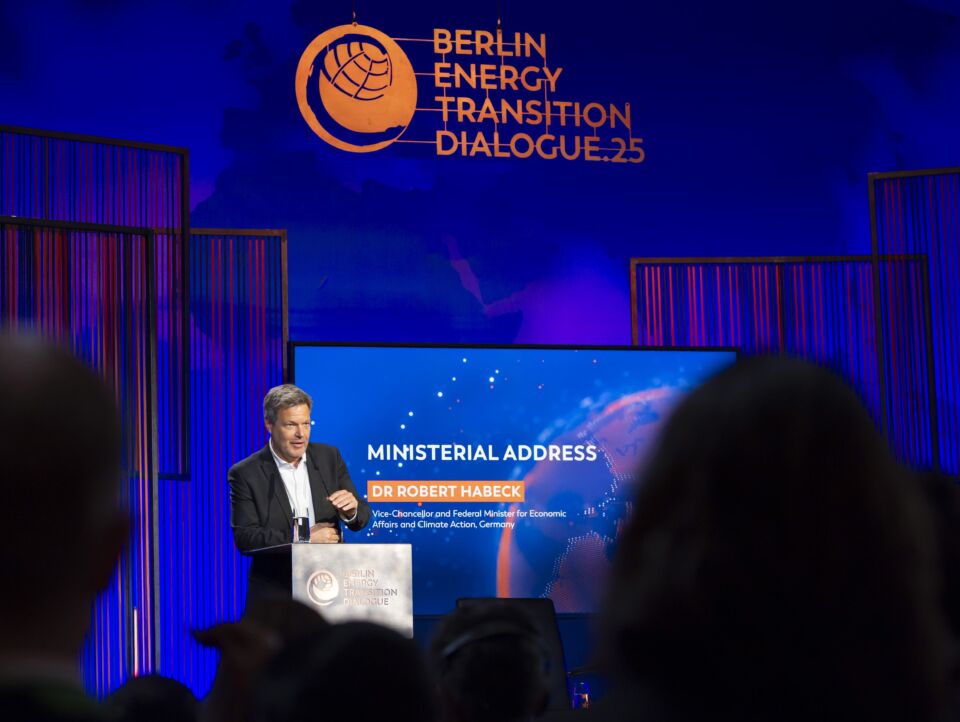
Crucially, Habeck linked this directly to energy. Germany, he admitted, had learned "the hard way" about the perils of energy dependency – an unmistakable reference to its past reliance on Russian gas – and how "power is also something that is exercised in the field of energy and trade." The antidote, he argued passionately, lies in diversification and accelerating the shift to renewables. "Electricity, and especially electricity from renewables... create security and resilience," he asserted, framing the Energiewende not merely as an environmental project, but as a fundamental pillar of national and international security and a policy for freedom.
Concrete Progress Amidst Global Uncertainty
This sharpened geopolitical focus lends further urgency to Germany's tangible progress on the ground. Minister Habeck highlighted key achievements: the share of renewables in electricity generation surging from around 40% to nearly 60% within three years, a dramatic acceleration in grid expansion approvals (from 300km to 2,000km per year), and a significant ramp-up in onshore wind capacity additions (aiming for 10GW annually). Solar power installations, he noted, were experiencing demand going "through the roof." These figures demonstrate that rapid decarbonisation, while challenging, is feasible even for a major industrial economy.
This progress is set against Germany's legally binding commitment to achieve climate neutrality by 2045 and its adherence to the Paris Agreement. Adopted in 2015, this landmark global treaty unites nearly all nations in the goal of limiting global warming to well below 2°C, preferably 1.5°C, compared to pre-industrial levels, primarily through nationally determined contributions (NDCs) that become more ambitious over time.
Germany's steadfast commitment to this multilateral framework stands in increasingly stark contrast to the United States. Following a withdrawal and subsequent rejoining, the US administration under President Trump initiated withdrawal procedures from the Paris Agreement for a second time on January 20, 2025. While the formal exit takes a year, this move signals a significant retreat from leadership by the world's second-largest emitter, placing greater onus on actors like Germany and the EU to champion the global climate agenda.
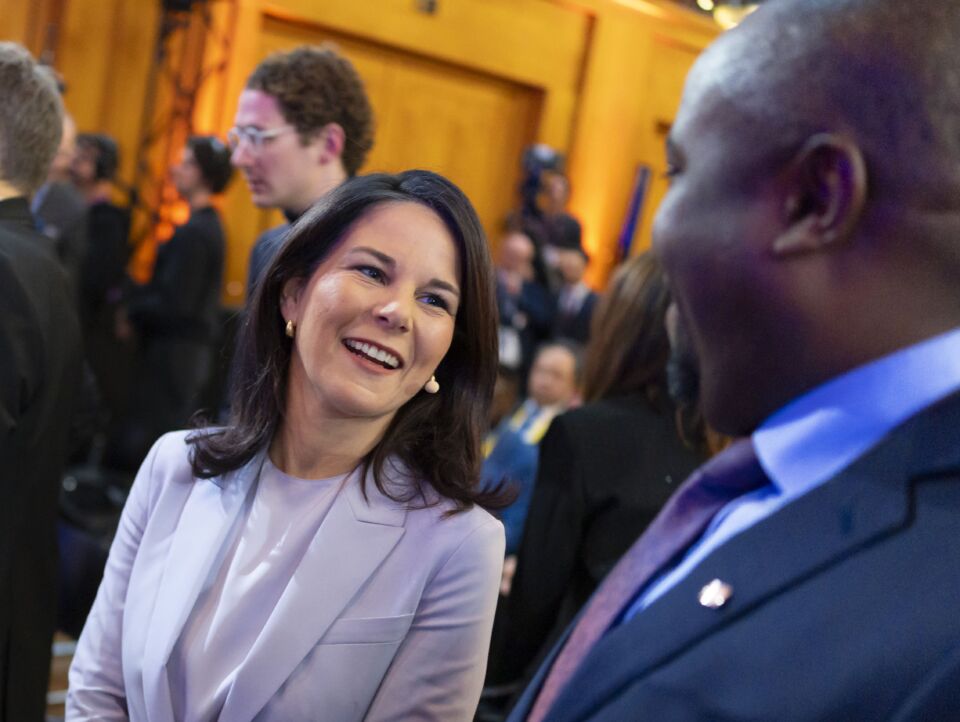
The evolution of Germany's Zeitenwende beyond military matters was unmistakable in the ministers' BETD speeches. Foreign Minister Baerbock directly linked the new geopolitical landscape to energy, stating, "investing in renewable energy is part of investing into our security," highlighting Germany's massive new funding package as proof. Economics Minister Habeck reinforced this, portraying the global dynamic as a confrontation "between freedom and force," where energy can be weaponized, and arguing that renewables offer crucial "security and resilience" against such threats. Through such actions and rhetoric, influential within the EU, Germany positions itself firmly as promoting a rules-based international system, using its energy and climate policy as tools against coercive power politics and demonstrating the broadened scope of its strategic reorientation.
Navigating Domestic Waters and Global Influence
Domestically, the German government navigates a complex landscape. While polls consistently show broad public support for the Energiewende's goals, anxieties persist regarding the pace, cost, and distributional fairness of the transition. The historic decision to amend the debt brake, though backed by a broad political consensus driven by perceived security necessities, touched a nerve regarding Germany's traditional fiscal conservatism. Similarly, the necessary increase in defense spending marks a shift from decades of public skepticism towards military matters, a change Habeck himself alluded to when referencing Germany's post-WWII history. Sustaining public consent for these profound, costly, and simultaneous transformations remains a key challenge.
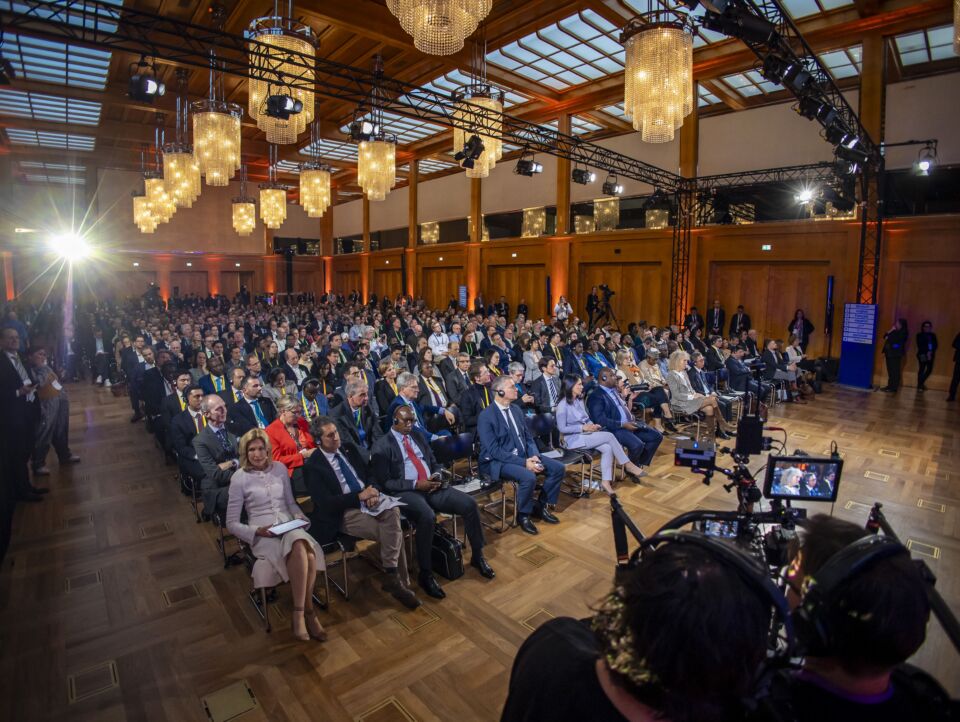
Internationally, Germany is clearly positioning itself as a proponent of a rules-based international order, contrasting its actions – investing heavily in renewables, upholding climate agreements, using diplomatic forums like BETD – with the "rule of power" approach it sees gaining ground elsewhere. Its influence within the EU is substantial, often setting the pace for the bloc's climate policies. The Zeitenwende – the "turning point" Chancellor Olaf Scholz proclaimed following Russia's invasion of Ukraine – is evidently extending beyond defense policy to encompass this integrated vision of energy, climate, and security.
Lessons for Nepal: Integrating Security, Climate, and Energy
For Nepal, a nation endowed with vast hydropower potential yet highly vulnerable to climate change impacts and navigating its own sensitive geopolitical neighborhood, Germany's experience offers pertinent lessons:
- Policy Integration is Key: Germany demonstrates that energy security, climate action, and economic strategy are not separate silos but deeply intertwined facets of national security and resilience. Nepal can benefit from explicitly linking its hydropower development and broader energy strategy to climate adaptation and national security goals.
- Renewables as Strategic Assets: Viewing indigenous resources like hydropower not just as clean energy sources but as strategic assets for energy independence is crucial. Germany's push for renewables is driven significantly by the desire to reduce reliance on external, potentially unreliable, suppliers.
- Long-Term Frameworks Attract Investment: Germany's constitutional goal for 2045 and the creation of large, dedicated funds like the €500 billion package signal long-term commitment, which is vital for attracting the necessary private investment. Similar stable, long-term policy frameworks could bolster investment in Nepal's energy sector.
- Diversification Enhances Resilience: While maximizing its primary renewable resource (hydropower), Nepal, like Germany exploring diverse renewables beyond wind and solar, could benefit from strategically developing other sources (like solar) and investing heavily in grid stability and efficiency to build resilience against climate-related disruptions (e.g., glacial lake outburst floods affecting hydro) or technical challenges.
- Active Diplomacy for Just Transitions: Engaging proactively in international forums, as Germany does with BETD, is essential for accessing finance, technology transfer, and best practices. Minister Baerbock’s emphasis on a "fair and just" global transition highlights the need for equitable solutions, a critical aspect for developing nations like Nepal seeking support.
As the world confronts the twin crises of climate change and geopolitical instability, Germany's path, while fraught with challenges, offers a compelling model. The decisions made in Berlin this past March underscore a profound realization: investing in a rapid, resilient energy transition is no longer just an environmental imperative, but a cornerstone of national security and a commitment to a future based on freedom and international cooperation.
Berlin Energy Transition Dialogue Germany in Nepal




![From Kathmandu to the World: How Excel Students Are Winning Big [Admission Open]](https://nepalaaja.com/index.php/img/70194/medium/excel-college-info-eng-nep-2342.jpg)


